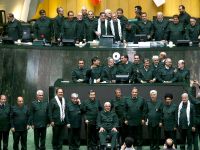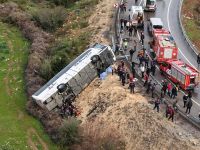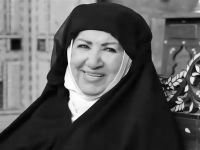Award-winning Japanese journalist Mika Yamamoto was shot dead in a gunfight between Syrian forces and rebels in the conflict-torn city of Aleppo earlier this week. Today the final video of her reportage was released by colleagues, showing the desperate plight of those trapped inside the chaos.
Sadly,Yamamoto will likely not be the last foreign journalist to die in the bitter Syrian conflict. She follows a long list of journalist deaths, including French reporter Giles Jacquier, who was killed on January 11 at central Syria's Homs and American journalist Marie Colvin who perished alongside her French photographer, Remi Ochlik, on February 22. At least 20 other journalists have been killed in Syria during the conflict, according to nonprofit group Committe to Protect Journalists, and with no signs of a let up, this could become one of the most deadly wars of the century for journalists.
Marie Colvin - a woman with more than a few conflicts under her belt - certainly seemed to think so. Just hours before she was killed, Colvin told CNN that Syria was the worst place she had ever reported from. She said: "It's partly personal safety I guess, there's nowhere to run. The Syrian Army is holding the perimeter. And there's just far more ordnance being poured into this city and no way of predicting where it's going to land."
The video released today by Yamomoto’s colleagues paints a very similar picture. She too reported that civilians were legitimate targets in this bloody war: “"They are shooting indiscriminately," she is heard to say in those tragic last few words.
But these are journalists, not just ordinary civilians and most, like Colvin and Yamamoto, know the risks before they set off to cover yet another conflict. Ms Yamamoto was a veteran war correspondent with the Japan Press news agency, and had covered both the Iraq and Afghan conflicts.
Syrian rebel commander Ahmad Ghazali told BBC news that journalists enter Syria at their own risk: "We are not responsible for Assad's killings and the attacks on foreign journalists and even Syrian journalists…every journalist who enters, enters at their own responsibility or the responsibility of their countries or the organization they work for."
So, is war reporting worth the risk?
Many of those living through the horror of the Syrian conflict day-in day-out are left with no way out - if they say they are with the regime, the opposition will attack; if they say they are not, the military will. There are undisclosed massacres happening in Syria that strip entire villages of their inhabitants leaving just rows of empty houses. For reporters outside the war zones, they are left with scraps of information from desperate refugees rather than on-site footage.
Realistically, without journalists these atrocities would remain unknown.
In an address at St Bride's church in 2010, at a service to commemorate journalists, cameramen and support staff who had lost their lives during conflict, Marie Colvin explained why the risk of covering wars in countries like Syria is worth it:
"Many of you here must have asked yourselves, or be asking yourselves now, is it worth the cost in lives, heartbreak, loss? Can we really make a difference? I faced that question when I was injured. In fact one paper ran a headline saying, has Marie Colvin gone too far this time? My answer then, and now, was that it is worth it.”
In the wake of Yamamoto's death her colleague and husband Kazutaka Sato - who was at his wife's side when she was shot - says journalists must continue to go to countries like Syria "because we want to show the whole of the world what is happening".
What do you think: Is war reporting worth the risk? Could Syria be the most dangerous conflict for journalists that history has ever seen? Leave us your comments below!


![Yamamoto pictured with her Father in 1998. He said of his late daughter, he respects her as a journalist who "always stood against those with power" [source: AFP] Yamamoto pictured with her Father in 1998. He said of his late daughter, he respects her as a journalist who "always stood against those with power" [source: AFP]](/sites/default/files/styles/d06_standard/public/im/misc/yamamoto.jpg?itok=fPeQtuWD)





